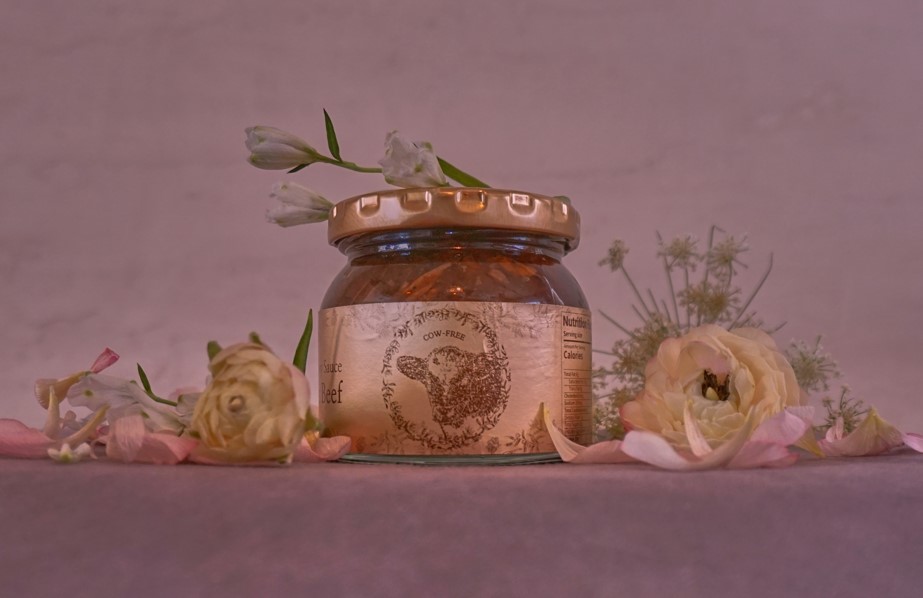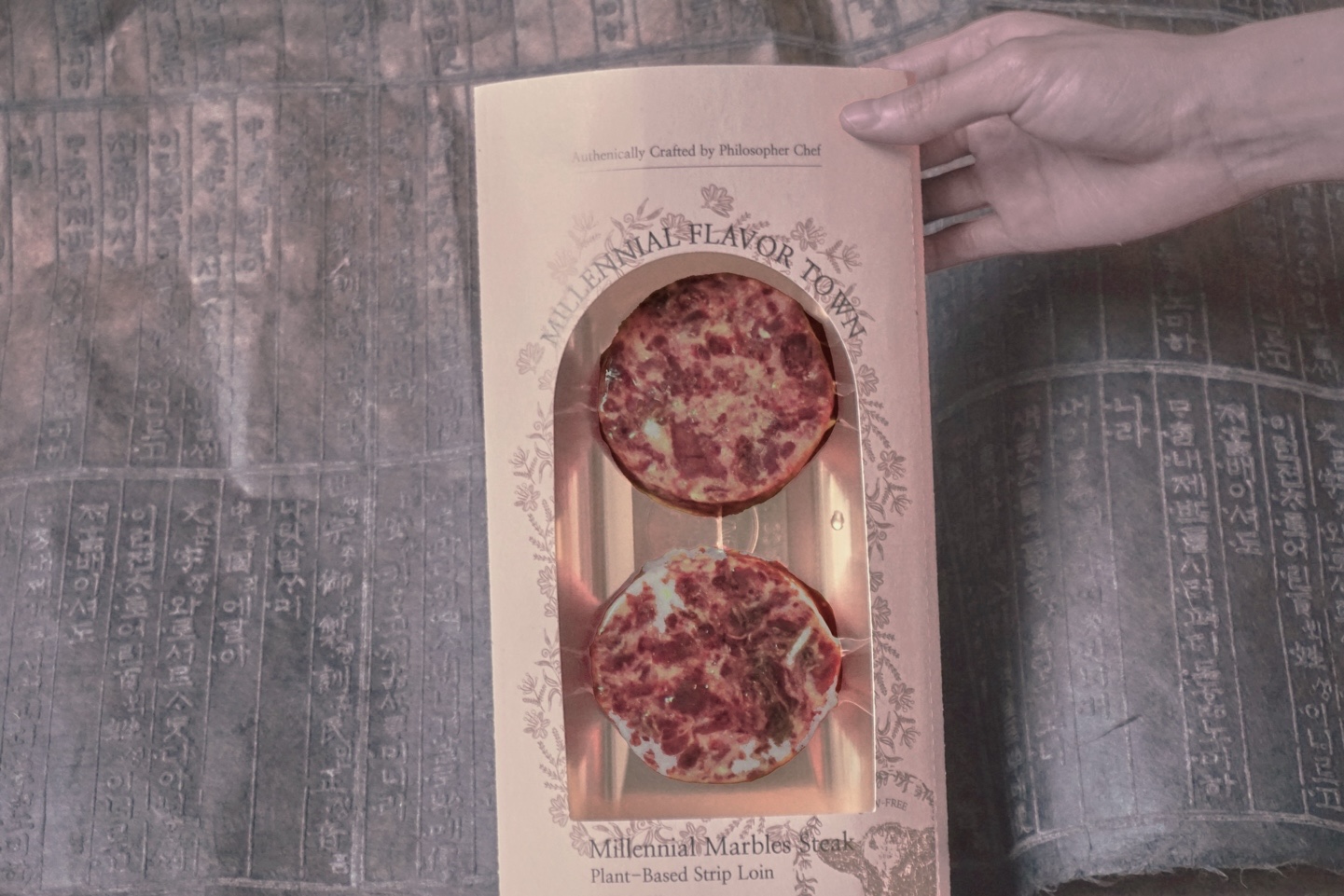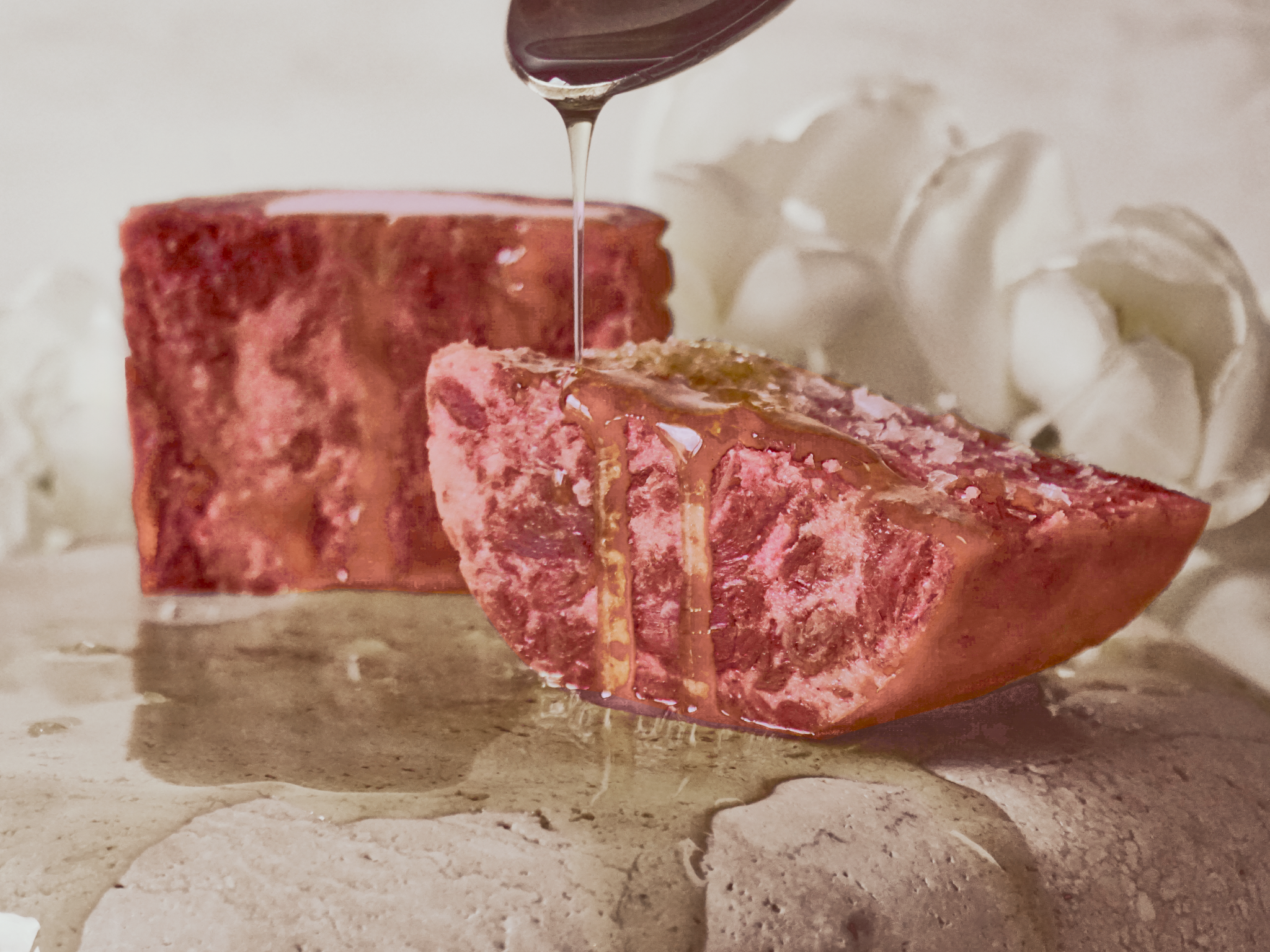Korean Startup Debuts Fermentation-Derived Marbled Wagyu Steak Ahead of US & Europe Launch
4 Mins Read
South Korea’s Millennial Flavor Town, a startup born out of a restaurant, has unveiled a marbled steak and shredded beef products made from traditional fermentation.
Rivalling the growing crop of whole-cut meat alternative producers, Seoul startup Millennial Flavor Town has developed two beef innovations derived from time-honoured Korean fermentation techniques.
The company will showcase its marbled Wagyu steak and shredded beef products (which come in soy sauce and truffle flavours) at the Plant Based World Europe expo at Excel London this week (November 13-14).
The event is a precursor to Millennial Flavor Town’s entry into the European and US markets, where whole-cuts have gained popularity lately thanks to their flavour and textural advantages over second-generation plant-based meat products.

Using fermentation and marbling to take vegan beef to the next level
Millennial Flavor Town is an offshoot of Bakrin Ahn’s Millennial Dining eatery in Seocho, which has been serving up vegan versions of Korean classics since 2020.
The restaurant’s menu comprises dishes like a five-hour braised carrot dish, tteokgalbi (grilled short rib patties), and pasta with apple jam. It also serves and sells several versions of the beef analogues, from tenderloin and ribs to strip loin and sirloin steaks.
The startup uses a five-step patented fermentation process to transform a base of soybeans, button and shingled hedgehog mushrooms, red beet powder, rice koji and olive oil (among other fats) into high-protein, cholesterol-free beef alternatives.
The shredded beef products come ready to eat in jars, and the soy sauce version contains nearly 11g of protein per 100g, alongside all essential amino acids.
The whole-cut Millennial Marbles (MM) steak takes things a step further. Using red beet powder and coconut oil, it mimics the fat marbling found in conventional beef, complemented with aroma from Korean charcoal grills to entice meat-eaters who are looking for better-tasting meat analogues with a more realistic texture.
Millennial Flavor Town’s potential was recognised at the Korea-ASEAN Business Model Competition for Sustainable Development Goals in Indonesia last month, where it won a $6,000 award for its meat analogues.

Startups magnify focus on whole-cut meat alternatives
Research has shown that consumers prefer steaks with higher-marbled textures. A survey of US consumers found that 42% of respondents are deterred from trying meat alternatives because they feel they’ll dislike their texture.
Separate polling has revealed that more than one in five (22%) of Americans have cut back their purchases of vegan food due to their texture. And in the UK, 51% of people say taste and texture are the biggest factors driving them away from meat alternatives.
This is why whole cuts and fat marbling have been described as ‘holy grail’ technologies for alternative proteins. It has prompted one Swiss researcher to create marbling tech by processing pea protein with biochemical engineering techniques, and startups like Sweden’s Melt&Marble and Australia’s Nourish Ingredients to use precision fermentation to create fats and lipids that can enhance these products. Meanwhile, German companies Planeteers and Handtmann have teamed up to help producers develop marbled meat analogues with fine fibrous structures.
Several startups have made whole-cut vegan meats their entire focus. Israel’s Redefine Meat, for example, was one of the first to debut such a product. It employs 3D printing to develop fibres that resemble animal muscle tissues and has been endorsed by the OG celebrity chef, Marco Pierre White.
Slovenia’s Juicy Marbles similarly came to the scene in 2022. It layers plant protein fibres on top of each other to mimic animal muscle fibres, with deposits of hardened sunflower oil adding a realistic fat-marbling mouthfeel to its steak.
US startup Chunk Foods also makes whole muscle steaks (using cultured soy and wheat), and recently debuted four SKUs in US retail. In Spain, Novameat raised €17.4M earlier this year for its MicroForce technology for whole cuts, while Libre Foods unveiled its whole-muscle mycelium chicken breast last year. UK-based Adamo Foods is similarly developing whole-cut mycelium meat, while Sweden’s Planted and Indonesia’s Green Rebel Foods both offer plant-based versions.
Germany’s Project Eaden and Massachusetts-based Tender Food, meanwhile, are innovating with fibre-spinning technologies inspired by the textile industry to produce marbled whole-cut meat.



